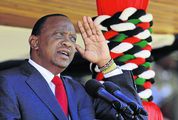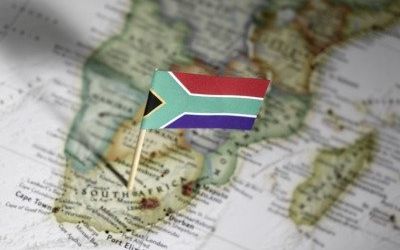THE small business sector is waiting for its turn at the breakfast table with the president.
Small businesses have the most potential to generate employment, but often feel they are the poorer cousins of their bigger counterparts whom the president consulted ahead of his state of the nation address last month.
"It is great the president engages with corporate SA, like he did prior to the state of the nation address, but I would like to see him have a breakfast and host small and medium enterprises," said Seapei Mafoyane, CEO of Shanduka Black Umbrellas.
Ms Mafoyane, who oversees Shanduka’s nonprofit enterprise development-incubation body in collaboration with the private sector, the government and civil society, described issues in the sector.
"The value in resolving the problems facing small businesses does not lie in another government strategy, it lies in supporting them because they are big labour absorbers.
"The support mechanisms for entrepreneurs need to translate from policy, legislation and paper into tangible action," says Ms Mafoyane.
Shanduka Black Umbrellas was set up to tackle the failure rate of black-owned emerging businesses and stimulate entrepreneurial activity in SA.
The National Development Plan envisages that by 2030, small and medium enterprises will generate 90% of jobs.
The country is grappling with high unemployment, at about 5.2-million jobless people.
Small businesses are doing their bit to create jobs, says Ms Mafoyane. Businesses operating under the Shanduka Black Umbrellas programme created 1,000 jobs from July 2014 to last June.
The government created the Small Business Development Department to advance their cause and Finance Minister Pravin Gordhan said in the February budget, R475m would be reprioritised from other areas to bolster the ministry.
But a lack of access to funding remains a barrier for small business.
Shanduka Black Umbrellas supports approximately 8,000 black-owned businesses.
Around 400 of the businesses supported by SBU are in the incubation programme and the remainder use the Shanduka Black Pages online platform to access procurement opportunities, online training and potential funders.
Although the businesses do not get loans, they are assisted with resources, compliance documents such as tax certificates and are linked to prospective clients as subcontractors.
Businesses in the programme get guidance for three years.
Ms Mafoyane says small businesses should be afforded the same attention as their bigger counterparts.
Small and medium enterprises that need to import goods to produce goods have felt the weak rand’s debilitating effect, says Ms Mafoyane.
Monga Phaladi, secretary-general of the National African Federated Chamber of Commerce and Industry, also bemoaned the lack of access to funding for these businesses.
"We are not saying that we are entitled to getting money for free, but the government needs to help us out financially," says Ms Phaladi.
Development finance institutions such as the National Empowerment Fund and the Industrial Development Corporation have stringent lending criteria that many small businesses are unable to meet, Ms Phaladi added.

























Change: -1.27%
Change: -1.42%
Change: -1.87%
Change: -1.08%
Change: -2.01%
Data supplied by Profile Data
Change: -0.47%
Change: 0.61%
Change: -1.27%
Change: 0.00%
Change: 0.63%
Data supplied by Profile Data
Change: -0.12%
Change: -1.22%
Change: -0.17%
Change: 0.54%
Change: 0.00%
Data supplied by Profile Data
Change: -0.84%
Change: -1.85%
Change: -2.59%
Change: 0.36%
Change: -2.35%
Data supplied by Profile Data